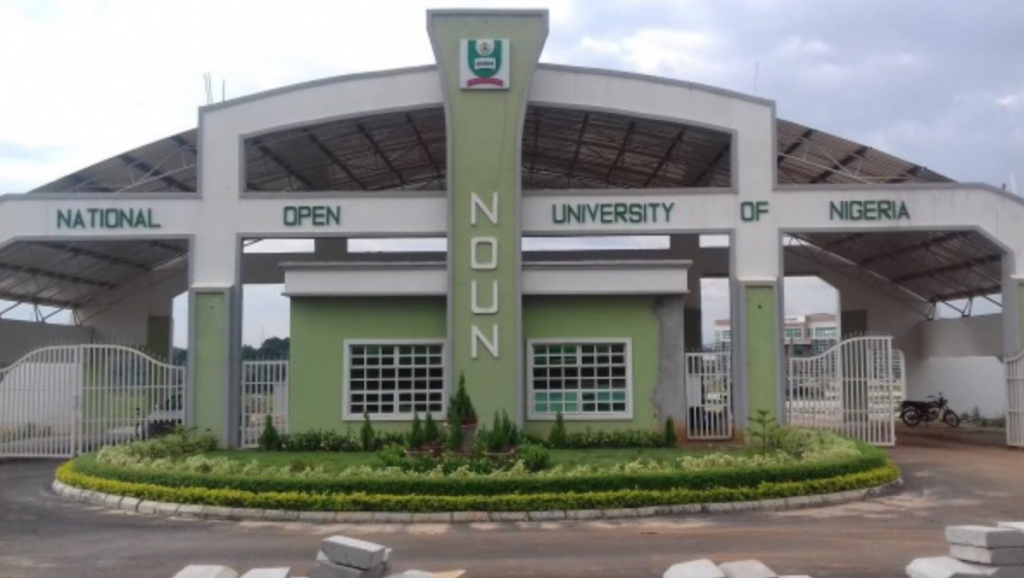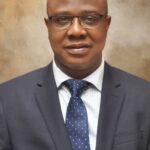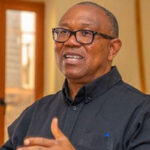
• Over 4.41m children face acute malnutrition – Red Cross
• Food security: Only 0.50% of FDI went to agriculture in 2023
• Endure, keep hope alive, Tinubu’s children beg Nigerians
• Don’t join protest, Ohanaeze directs Ndigbo
The International Federation of Red Cross and Red Crescent Societies (IFRC) and Nigerian Red Cross Society (NRCS), yesterday, expressed deep concern over the alarming rate of hunger in Nigeria, revealing that a staggering 26.5 million Nigerians are currently struggling with food insecurity.
Amid the soaring food inflation and complaints of food shortages being experienced across the country, the agricultural sector recorded a meager $19.91 million in foreign investment for the year 2023 representing just 0.50 per cent of total foreign capital import during the period.
On a year-on-year comparison, foreign investment in the agricultural sector dropped from $95.80 million recorded in 2022 to its current figure. This represents a decline of 79.2 per cent over one year.
Fishing, a sub-sector under the agricultural sector, did not record any foreign investment in 2023 representing a decline of 100 per cent from the $9 million recorded in 2022.
The agricultural sector also contracted for the first time in seven years in Q1 in 2023 in terms of its contribution to GDP.
International development institutions like the World Bank and the Food and Agriculture Organisation (FAO) have painted gloomy pictures of the food production sector in 2024.
The World Bank in its food security report noted that seven states across northern Nigeria will witness a severe food crisis in 2024 while the FAO stated that around 26 million Nigerians risk hunger this year.
In response to the food insecurity crisis, the NRCS is teaming up with Ecobank Nigeria to raise funds locally and provide much-needed relief for many of those affected. The collaboration aims to support Nigerians who have been impacted by the hunger crisis.
Secretary-General of Nigerian Red Cross Society, Dr. Abubakar Ahmed Kende, who disclosed this in Abuja, highlighted the severity of the situation, stating that nearly 4.41 million children and 585,000 mothers are facing acute malnutrition. This puts their lives at risk and emphasizes the urgent need for assistance.
Kende highlighted the devastating consequences of malnutrition, revealing that almost 1,000 children under age five die daily from malnutrition-related causes in Nigeria.
“The gravity of the hunger crisis persists, and more individuals are in desperate need of assistance. The IFRC, in collaboration with the Nigerian Red Cross, has therefore scaled up the Hunger Crisis Emergency Appeal to reach 2.5 million people. This appeal is part of the broader Africa Hunger Crisis Appeal, recognising the regional impact of this dire situation.

Few weeks after residents of Kano, Niger, Osun and some other parts of the country took to the streets over economic hardship, a similar incident occurred yesterday in Ibadan, Oyo State capital when protesters converged on Mokola area of Ibadan over high cost of living, food inflation and hardship in the country.
They wielded placards with inscriptions such as ‘The poor are starving,’ ‘Tinubu, don’t forget your promises’, among others. Policemen were seen guarding the protesters against taking law into their hands.
The police had on Sunday warned that no breach of peace would be allowed during any protest in the state. Nigerians have lately been complaining bitterly about the current situation.
The protest, which took off at Mokola Roundabout, had in attendance representatives of different groups including traders, artisans, students’ unions from various institutions in the state. The protest, according to them, was aimed at drawing the attention of the leadership at all tiers of government to the prevailing economic situation in the country.
The protesters moved from Moka, Veterinary Junction, Sango, Bodija, Agbowo and Agodi Gate, slowing traffic movement in the affected areas. The chant of ‘Ebi n pawa’ (We are hungry) rented the atmosphere as the youth trooped out en-mass.
One of the protest leaders, Emiola Solomon, said the protest was held under the aegis of All Concerned Nigerians. According to him, the hardship in the land was excruciating and the President must rise to the occasion before the country burns down.
He said: “The masses are suffering due to the hike in prices of food items. Buying food has become difficult now. All food items are costly.”
The eldest son of President Bola Tinubu, Mr Seyi Tinubu, on Monday, pleaded with Nigerians to exercise patience with his father’s administration as they weather the challenging economic times. Seyi, in an Instagram post, rehashed his father’s words from a national broadcast to mark the 63rd Independence Day anniversary last October.
Then, President Tinubu said: “There is no joy in seeing the people of this nation shoulder burdens that should have been shed years ago. I wish today’s difficulties did not exist. But we must endure if we are to reach the good side of our future.”
Seyi declared that he stands with his father and argued that the present generation “will yield the fruits of this hardship.”
The post carried hashtags such as #HaveFaithinHim, #NigeriaisinGreatHands, #OurGenerationwillYieldthefruitsofthishardship, #IStandwithOurPresident, #RenewedHope and #NigeriaismyHome.
However, Seyi’s message did not sit well with some Nigerians, who criticised the President’s son for living opulently while demanding sacrifice from the people.
Also, Folashade Tinubu-Ojo, President Tinubu’s daughter and the Iyaloja General of Lagos State, has urged Nigerians to have patience in the face of economic hardship across the nation. She advised the populace to hold onto their optimism, pointing out that the economic crisis is not unique to Nigeria but a global phenomenon.
She said this while speaking with reporters at the 2024 Mawlid Nabiyy of the Lagos State chapter of Aljamahatul Qadiriyyah Islamic Movement.
According to her: “My message to all Nigerians is to please exercise a little more patience. Everything will be alright; it’s just a matter of time. We need to keep our hope alive. There is an economic downturn all over the world, and not in Nigeria alone. But we pray Allah will see us through.”

Meanwhile, Ohanaeze Ndigbo has directed Ndigbo all over the country not to join the ongoing protests against hardship. In a statement signed by the President General of Ohanaeze Ndigbo, Emmanuel Iwuanyanwu entitled “Message to all Igbos worldwide”, he said: “I write as your leader at this critical period in our country, Nigeria. Events in Nigeria today are no doubt very disturbing. The economy has turned very bad, a sceptre of frustration is everywhere.
“I have received many entreaties from many parts of the country requesting me to call Igbos to join in demonstration and violent action in the Country against the Government.
“As your leader, I am directing that no Igbo group or community in Nigeria or in Diaspora should join in this action. I am still studying the situation. I have asked Nigerians who approached me the following questions, what did they do when the past government disfranchised Igbo land?
“Most of the Igbo are in the Southeast and the region is very sadly marginalised in all ramifications. We are the only geopolitical zone that has only five states. This situation has cost us billions of financial losses. It has also cost us losses in both political appointments and legislative representations.
“In 2005 and 2014, we raised this issue at various political conferences. All men of goodwill at the conference agreed that it was unfair for the Southeast to have only five states and recommended that an additional state be created in the Southeast but up till today, this has not been done. I have severally drawn the attention of the Federal Government to this injustice against the Southeast.
“In the 1999 Constitution as amended, we all endorsed a federal character. Igbos by nature would have preferred the free competitive process rather than a federal character paradigm. But we realised that Nigeria is a federation comprising so many ethnic nationalities and as part of our sacrifice towards the unity of Nigeria, we accepted the federal character option but unfortunately, it has been used to manoeuvre the Igbo out of most critical positions in government.”













